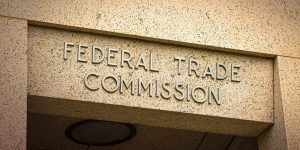Search Results for Topic: Do Not Call Solution
-
Are Purely Informational Texts Exempt from Consent Rules?
Razor Rank, Blog
Yes, purely informational texts are generally exempt from certain consent rules under regulations like the Telephone Consumer Protection Act (TCPA). However, this exemption applies only when the texts strictly provide non-commercial, non-promotional information, such as appointment reminders or emergency alerts. If a message contains any… Continue Reading
-
TCPA Regulations and Compliance: Complete Guide
pnadmin, Blog
What Is the TCPA? The Telephone Consumer Protection Act 47 U.S.C 227, or TCPA, is a federal statute that aims to protect consumer privacy by controlling telemarketing communications made via voice calls, fax, and SMS texts. The TCPA Act was signed into law in 1991,… Continue Reading
-
The Basics of DNC Scrubbing: What Is a Do Not Call (DNC) Scrubber and Why Do You Need It?
pnadmin, Blog
What Is the Do Not Call (DNC) Registry? The Do Not Call Registry is a database of phone numbers and contact information maintained by the United States government’s Federal Trade Commission. The phone numbers on this registry have revoked consent to be contacted by companies… Continue Reading
-
What Is an Existing Business Relationship (EBR)?
Razor Rank, Blog
An Existing Business Relationship (EBR) is a connection between a business and a consumer based on a prior transaction or inquiry, allowing certain exemptions from Do Not Call (DNC) regulations. Specifically, the Federal Trade Commission (FTC) and Federal Communications Commission (FCC) permit businesses to contact… Continue Reading
-
Can Businesses Be Sued for Do Not Call Violations?
Razor Rank, Blog
Yes, businesses can be sued for Do Not Call (DNC) violations, and such lawsuits can lead to significant fines and legal repercussions. Non-compliance with the Telephone Consumer Protection Act (TCPA) and Federal Trade Commission (FTC) Do Not Call regulations opens businesses to risks of hefty… Continue Reading
-
Are There TCPA Exemptions for Healthcare Providers?
Razor Rank, Blog
Yes, there are specific exemptions under the Telephone Consumer Protection Act (TCPA) for healthcare providers. These exemptions primarily apply to calls or text messages that are considered essential to patient care, such as appointment reminders, prescription refill notifications, and other non-marketing communications. However, healthcare providers… Continue Reading
-
Are There DNC Exemptions for B2B Calls?
Razor Rank, Blog
Yes, Business-to-Business (B2B) calls are often treated differently under Do Not Call (DNC) regulations than Business-to-Consumer (B2C) calls. In most cases, the National DNC Registry rules primarily apply to B2C telemarketing, meaning that calls made to businesses generally fall outside of these restrictions. However, the… Continue Reading
-
Are EBR Calls Exempt from DNC Regulations?
Razor Rank, Blog
Yes, calls made under an Established Business Relationship (EBR) can be exempt from the National Do Not Call (DNC) Registry rules. This means that if you have a valid EBR with a customer, your organization may be permitted to make sales calls to that individual… Continue Reading
-
What Is Vicarious Liability under the TCPA?
Razor Rank, Blog
Vicarious liability under the Telephone Consumer Protection Act (TCPA) refers to a situation where a company can be held legally responsible for the actions of a third party, such as a vendor or contractor, who engages in unlawful telemarketing on the company’s behalf. Even if… Continue Reading
-
How Do Consumers Report a Number to the FTC?
Razor Rank, Blog
Reporting a phone number to the Federal Trade Commission (FTC) is a straightforward process. Consumers can visit the FTC’s website and use their online complaint form to report unwanted calls. Alternatively, they can call the FTC’s toll-free number to file a complaint. Once the report… Continue Reading










